Acid Flashback: Vulcan Gas Company 1967-1970
Austin's first counter-culture concert hall opened for the Armadillo

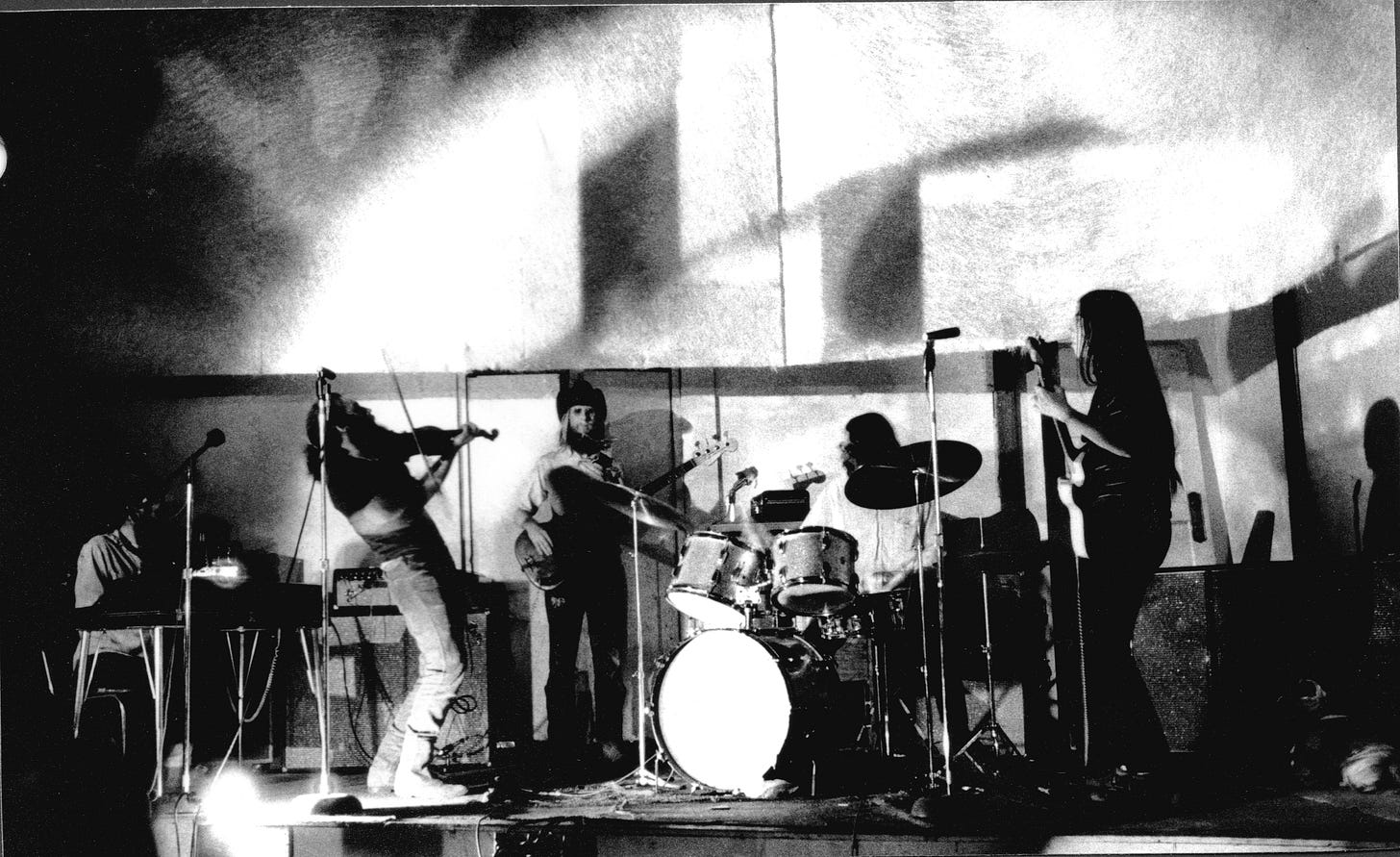
Austin’s first psychedelic ballroom, the Vulcan Gas Company opened on Congress Avenue in Oct. 1967, but without a license to sell beer and wine, the 900-capacity club lost money every month, no matter how many people came out to see Johnny Winter or Moby Grape or Muddy Waters or the Velvet Underground. After authorities shut down Austin’s first hippie club Fred (1809 San Jacinto) the previous year, for serving beer to a single minor, the Vulcan didn’t even try to get a license. They wanted to make the club all-ages anyway.
Who needs bar sales when you’ve got a line on primo LSD from the Bay Area? Big Mama Thornton was great, but the real star of the Vulcan was chemist/soundman Owsley Stanley, whose last batch of the strong acid he cooked for the 1967 Human Be-In ended up in Austin. Texas had peyote- and its extraction, mescaline- so a trade was made for the last 1,200 hits of Owsley’s “White Lightning, at 270 micrograms per dose (today’s LSD is about 70 mcg). The term “tripping balls” may have been coined by Texas hippies in their own Summer of Love.
Don Hyde used proceeds from his share to fund the Vulcan, which he said wouldn’t have stayed open more than a couple weeks, “if people in Austin had not enjoyed getting high and expanding their consciousness.”
Hyde’s partners Houston White, Sandy Lockett and Gary Scanlon had operated a concert production company called Electric Grandmother, which had great success renting Doris Miller Auditorium on the Eastside in Jan. ‘67 for the 13th Floor Elevators’ return show from the West Coast- and first in Austin since their debut LP release. About 2,000 fans came out to also experience White and Scanlon’s Jomo Disaster light show, which consisted of eight slide projectors, three overhead projectors and strobe lights. But the acoustics were horrendous in that basketball gym, and the search was on to find a suitable large venue that the Elevators could call home.
The Eastside welcomed longhairs, who generally drank more beer than the regulars, with the I.L. Club on E. 11th putting up a sign that said “Famous Beatnik Bands Nightly” (only “bands” was accurate.) Conqueroo, which had an African-American in Ed Guinn, led the Eastern migration, though the I.L. billed them as “The Kangaroos.”
Way on the other side of town was the Lake Austin Inn, a boat deck club open from 1941 until it was sold to developers (in a nine-acre lakefront tract for $300,000) in 1971. L.A.I. was a popular restaurant whose nightly entertainment changed with the times, so it leaned hippie down the stretch with Leo (Ellis) and the Prophets the house band in ’66-‘67. It was always fun to drop acid and ride the water taxi from the Lake Austin Boulevard side.
West Campus got a rock club in late ’66 when Fred owner Bill Simonson, who also had the 11th Door, opened the Match Box at 2513 San Antonio, in what is now the back room of the Hole in the Wall. Future Vulcan/Dillo favorite Mance Lipscomb played there, as well as psych bands the Thingies and Human Factor. The Match Box also showed silent and experimental films, and eventually became a fulltime moviehouse where you could drink beer. This was 30 years before Alamo Drafthouse launched in downtown Austin, at 409 Colorado.
Promoter Jimmy Moses tried to make a rock club out of the basement of Municipal Auditorium, which he called “A Place to Go.” But even as Georgetown Medical Band (a better group than name) and Lavender Hill Express packed the Place in its September ’67 debut, nobody besides Moses saw it as a viable venue.
With the addition of Hyde, the Electric Grandmother collective became the Vulcan Gas Company, and put on the “Love-In at Zilker”- Shiva’s Head Band’s debut- in September ’67. Then Hyde found a vacant Victorian storefront at 316 Congress that formerly housed Stein’s men’s clothing store, and made a handshake deal with building owner Joe Dacy to rent it for $350 a month. Congress Avenue was on the skids in the mid-’60s, but neighboring businesses didn’t want the dope-smoking longhairs, and made it known to Dacy, from a locally-prominent Lebanese-American family. So he showed up one night, unannounced, to see what was happening and walked away impressed with what the kids had done with the place. Just pay the rent on time, he told Hyde, and we’re cool.
Hippies were generally not to be encouraged in the land of LBJ, whose escalation of the Vietnam War made him the most hated man in America. It was a tense situation between war-protesting longhairs and law enforcement in Austin (even though it was an ex-Marine with a crewcut who killed 11 people from the Tower on Aug. 1, 1966). The Vulcan was seen as that club on Dragnet, where kids from good families lose their minds after buying drugs from diabolical guru-types.
An un-airconditioned, no-frills rock box, with benches instead of tables and chairs, the Vulcan had competition just two months after opening when the plusher Pleasure Dome, another Simonson venture, debuted in Dec. ‘67 at 222 E. Sixth. But the Dome, with its Sacred Mushroom Bar and freaky light show, lasted only a few months at the former Yank Theater location. Same with the Ozone Forest “teen psychedelic club” at 3405 Guadalupe, which opened in July ’67, but didn’t make it to cooler temps. Did those mind-expansion-themed clubs forget that Austin was in Texas?
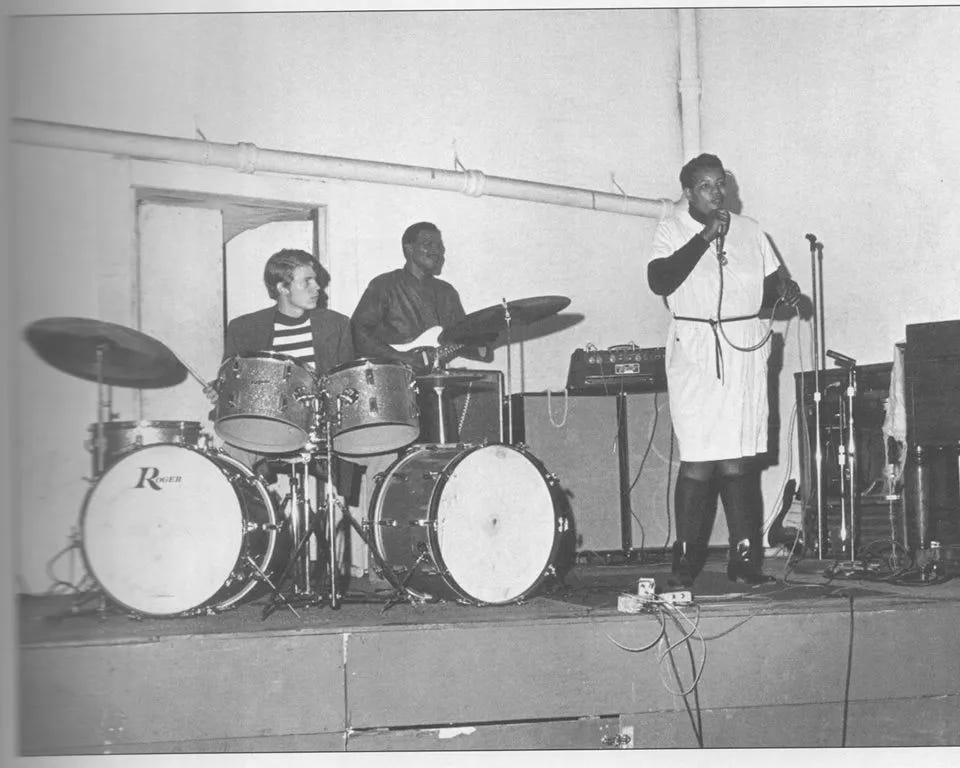
What set the Vulcan apart were occasional national acts, like Canned Heat and the Fugs, and acoustics so good it was sometimes used as a recording studio. When KAZZ, the most progressive radio station in town, was sold to KOKE in ‘67, general manager Bill Josey Sr. and son Bill Jr. (“Rim Kelly” on the air) concentrated on the Sonobeat label, founded to record the best bands from their New Orleans Club remotes. After being blown away by Beaumont’s Johnny Winter at the Vulcan, the Joseys signed him and had Sonobeat’s only financial success when they sold The Progressive Blues Experiment- recorded live in ’68 by Winter’s trio in an otherwise empty Vulcan- to Imperial Records. Conqueroo was also recorded live at the Vulcan during the day, which yielded the 1968 Sonobeat single “I’ve Got Time” and “1 to 3.” Shiva’s sessions at the Vulcan never came out on Sonobeat, as the band was wooed by bigger labels and eventually signed with Capitol.

The Vulcan was continually under surveillance, not only from police but a “hippie watch” group of concerned parents, who patrolled the Vulcan as well as the Texas Union, looking for drug transactions and runaways. “We’re available to testify,” head vigilante William Creamer told the Statesman.
But a much-greater threat came when Hyde was visited by a vice cop whose lawn he used to mow as a kid. Officer Spain told Hyde there was tremendous pressure on APD to shut the Vulcan down. “If you don’t stop,” he told Hyde, “half a pound of pot will be planted in your office and you’ll do 15-20 years in Huntsville.” Hyde put a for sale sign on his house and quietly slipped out of town.
This was soon after the Vulcan lost their asses booking Janis Joplin and Big Brother into the Hemisfair Theater in San Antonio on Nov. 21, 1968. Both shows sold out, but all the money had to be refunded after the singer canceled due to illness. Questioning the excuse when Joplin fulfilled commitments in Dallas and Houston that week, a disgusted Hyde dumped 3,000 posters he had made- one for each ticketholder- into the trash. “We never really recovered,” Hyde said, estimating the Vulcan lost $3,500 in advertising and venue rental costs.
Johnny Winter, fresh from his stunning Columbia debut, came back to play a two-night benefit in March 1970. But the Vulcan held on only until May, which left a big void in the scene. At a Hub City Movers gig June 13 at the Cactus Club on Barton Springs Road, Shiva’s Head Band manager Eddie Wilson went out the back door to take a leak and before him was an abandoned Army Reserve Armory that was just about the size of the Fillmore in San Francisco. Most of the seed money to open the Armadillo World Headquarters in August 1970 came from Shiva’s recording advance, which gave a little extra for the band to develop other acts in the city Capitol Records was betting would be the next San Francisco.
READ MORE
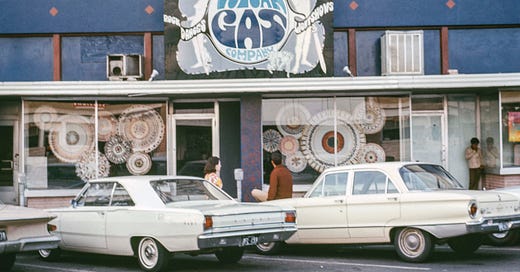


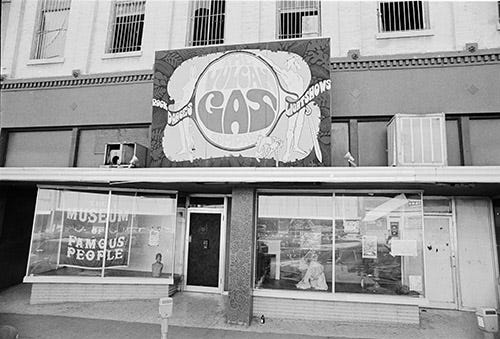
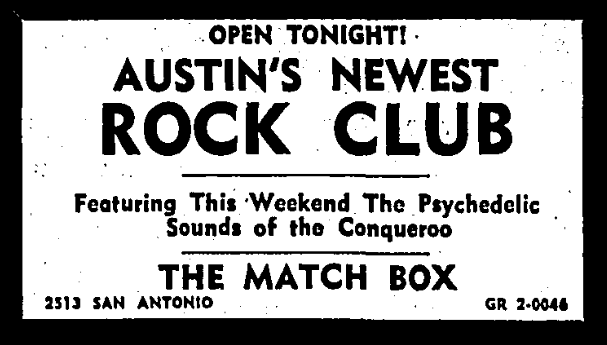

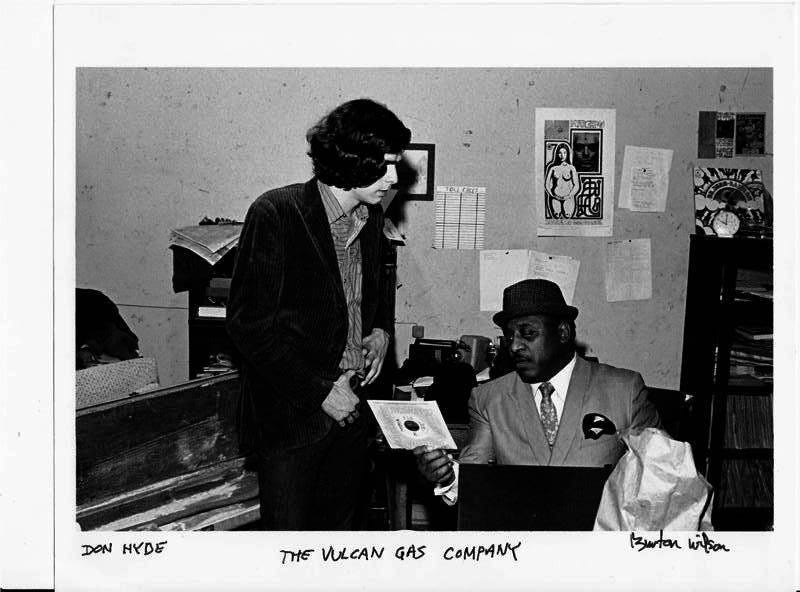
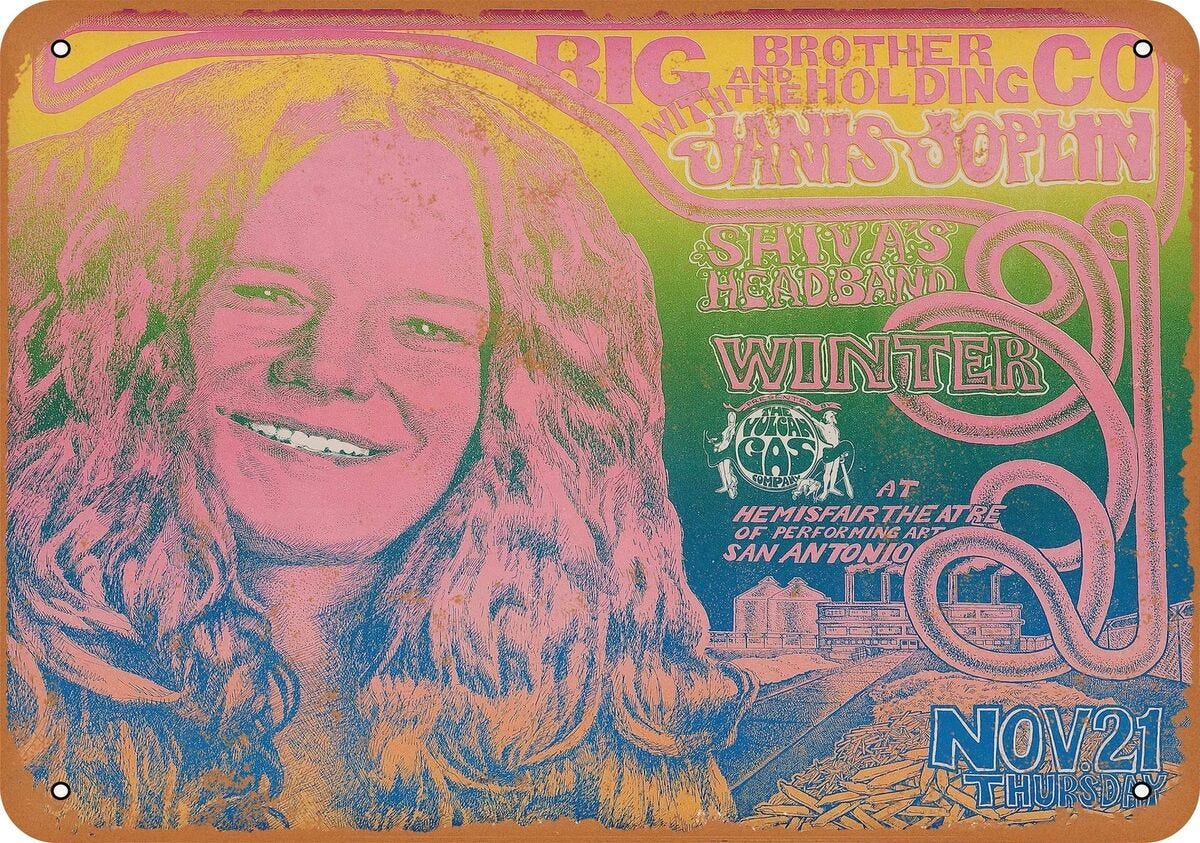

Michael: The reason Vulcan had no beer or wine license had nothing to do with The Fred being busted. The Vulcan didn’t want one. We all wanted the shows to be open to minors...a real thorn in the establishments side. Everything was in my name and I could not have had a license if I wanted one as I was not even 21. Besides it was about the most far away thing in my mind and I hated beer! Don Hyde
I have my original Vulcan Gas Co. members card that got me in any show for $1.50! Saw Winter/muddy, Moma, Big Joe, poco, lightnin, tbone, Texas, Cotton ❤️15yrs old